29 January 2022
From cabinet minister to prisoner and now prison chaplain
Philip Halcrow interviews Jonathan Aitken and fellow ex-prisoner Edward Smyth

Once a high-profile prisoner, former cabinet minister Jonathan Aitken is now a chaplain ministering to inmates. When he and another ex-prisoner Edward Smyth noted an absence of any guide to help prisoners get through their sentence, they decided to write a book about their experiences.
Two decades after receiving an 18-month prison sentence, Jonathan Aitken still remembers the first night that he spent in prison. He has kept those hours in mind as he continues to spend time inside, though now it is as an ordained Church of England chaplain at HMP Pentonville rather than as an inmate.
He wants to help other people get through their first night behind bars and the rest of their jail term. It is why he has teamed up with another former prisoner, Edward Smyth, to write Doing Time.
Jonathan and Edward’s routes through what they call the ‘intensely private’ experience of serving a prison sentence were different in a number of ways.
Having resigned as a cabinet minister, Jonathan was in the spotlight throughout his failed libel case against The Guardian, his subsequent trial and conviction for perjury and perverting the course of justice, and as he served his sentence at HMPs Belmarsh, Standford Hill and Elmley.

His co-author Edward was barely into his first job when in 2015 he was given a brief sentence. But when the two former prisoners met, they identified a common problem.
Edward says: ‘I was doing my criminology master’s degree, and it was around the time when Jonathan was about to be ordained. I wrote him a card to congratulate him and wish him luck in his ministry. I never expected to hear anything, but he wrote back and asked if I would come over for a cup of coffee.
I visited him at his home, and by the end of that meeting we had come up with the idea for this book that both of us could have benefited from on our first night in prison.’ Jonathan recalls how the two of them had noted that, in all the literature about prisons, there was no ‘how-to guide’ for surviving a sentence, practically or spiritually.
‘We had both been through the prison experience,’ he says. ‘We both had a strong faith and we both wanted to help future prisoners. So we said, “Why don’t we have a go?”
‘Lots of people are found guilty and then told to come back in a month for sentencing. So, they have plenty of time to know that they are going to prison. But, if in that time they try to find out what prison is really like, and if they don’t rely on tabloid exaggerations, there’s nothing written.
‘In the book, we tell it like it is from our own perspectives and experiences and hope that somebody will pick up something that will be helpful.’

Doing Time gives the lowdown on various aspects of prison life.
It explains the processes and possible emotions that may arise as a result of visits from family and friends. ‘And any prison sentence,’ Jonathan tells me, ‘is also a sentence on the family of the prisoner.
'One of the biggest worries many prisoners’ families have is fear and anxiety created by ignorance. They think prison is going to be much more terrible than it is. I hope this book is a dispeller of ignorance and fear. Prison, although difficult, is bearable.’
The book also attempts to wrest the image of prison officers away from their portrayal in popular culture as simply inmates’ enemies.
At the same time, it warns that media headlines about drugs in prison are not too wide of the mark, but it strongly recommends that prisoners should steer clear.
‘The chapter about drugs explains how easily available drugs are, why they are such a powerful temptation and how to deal with that temptation,’ says Jonathan.
‘Evil in prison is at its most present and pernicious in the smuggling, selling, buying, spreading and taking of drugs. During my first weekend in Belmarsh, I thought I was in some sort of Moroccan souk rather than an English jail, because so many people were spinning around, having taken various substances. But also in prison there’s a lot of understanding, and you can get plenty of help.’
Edward describes drugs as ‘one of the most significant challenges facing prisons and those people who live and work in them. Jonathan and I have seen first-hand the absolute misery that drug use and drug debts can cause both to the person in prison and, sadly, to their families outside when drug debts try to get settled beyond the prison gates.
‘I work for a drug and alcohol charity that does most of its work in prisons. The fact is that a lot of people arrive in prison with some form of addiction, but quite a lot of people develop an addiction in prison as well.
‘If the deck is already stacked against you being able to leave prison and go on to lead a successful life, if you then introduce drugs into that and it becomes almost unwinnable without support. By writing about drugs in a book that we’re hoping prisoners will read in their first week, we’re hoping to get in before anybody else does.’
While issuing an early warning on drugs, Edward encourages new arrivals from court to think twice before just saying no on another matter. Even if they feel that their association with a faith community is sketchy, they should not rush in to tick the box ‘no religion’. Any qualms, questions or worries about beliefs can be explored in the weeks ahead.
Simply ticking the box of a church denomination will mean they get a visit from a chaplain ‘and will have a raft of practical implications, such as the fact that it will be much easier to get into chapel on a Sunday morning. Even if people are going to chapel just because they want to get out of their cells or they used to go to church when they were five years old and they haven’t for 30 years, there’s not a lot to lose, so why not.'
And Edward is sure that there could be a lot to gain. He even describes prisons as ‘thin places’ – a term associated with Celtic Christianity and which is often applied to spectacular, rural scenery – where the divide between the Divine and humankind seems somehow flimsier than elsewhere.
‘I’ve stood in chapel in prison and watched people in the depths of misery weep because a family member has died the week before or they’ve just come to the realisation of how long they’re going to spend in prison. I’ve also seen people weep in chapel because they’ve had a spiritual experience, they have come to faith or they've felt part of a community for the first time.
‘All that heightened emotion happens within one very small space. People are at wildly different stages of their relationship with God, but all you can say for certain is that he is at work in that space at that moment. You see God at work in people’s lives.’
Edward already had a background in Christianity when he was sentenced. He talks of how, wrestling with questions of faith and his own self-understanding during his time in prison, he came to a greater realisation of the forgiveness of God, which he had heard people speak about for years.
Jonathan had arrived in prison ‘in a searching mood’. He spent his first night reading a passage from the Bible’s Book of Psalms.
He remembers: ‘I’d had to wait a long time to actually get into the dock to plead guilty, and during that time I had been doing a lot of searching. The reason I looked to Psalm 130 on my first night was that, when I was on my way into the Old Bailey to be sentenced, there was a man who I suspect stood there on a great many days, and he thrust into my hand a pamphlet. I didn’t look at it. I just put it in my pocket. When I got into Belmarsh, I had to take everything out of my pockets, and there was this pamphlet about praying the Psalms. It said to read Psalm 130.’
So Jonathan began to read the passage – a prayer which begins with the words: ‘Out of the depths I cry to you, O Lord!’
‘The preacher Charles Spurgeon once said that Psalm 130 is the essence of all Scripture. All the teachings of the Bible are in that one passage. You’ve got a cry for help, you’ve got an understanding of the need for God’s forgiveness and you’ve got the suggestion that you need to be patient, to wait and to pray.’
Jonathan believes that the psalm, which ends with words of hope, echoes a truth about prisons that ought to be heard not only by people serving a sentence but also by wider society.
‘What people need to understand is that of all those who go into prison – however gloomy they may be about their own prospects – practically nobody is beyond the hope of a fresh start when they come out.
‘The tendency for people to say that a prison sentence means the end, the destruction of a life, a career, hope, prospects for work and so on is completely wrong. There are plenty of opportunities for second chances. Life will be different after prison, but it need not be desperate or hopeless or miserable – and, I would say, especially not if you are following the spiritual signposts towards receiving God’s grace.
‘And nobody has fallen so low that they are beneath the reach of God’s love.’
- Doing Time: A Spiritual Survival Guide is available to buy from Lion Hudson
Interview by
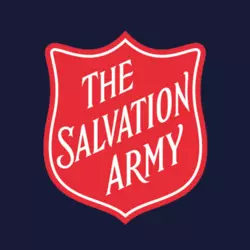
Philip Halcrow
Deputy Editor, War Cry
More from War Cry
All online articles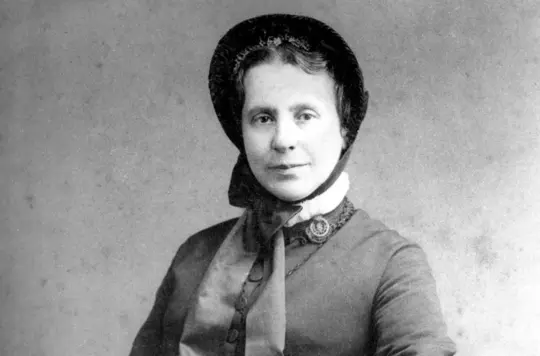
To mark Women’s History Month, author Cathy Le Feuvre speaks to Emily Bright about Catherine Booth's legacy.
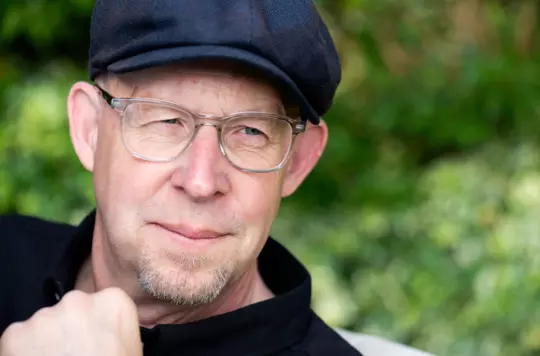
After encountering some of the world’s most famous people, journalist Cole Moreton explains what he has learnt about the value of human connection.
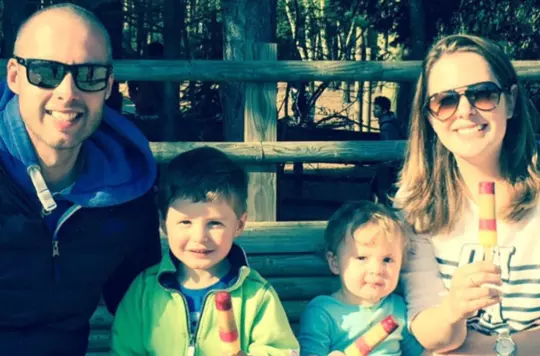
Louise Blyth explains how she and her husband found a new outlook after he developed the cancer that would end his life.
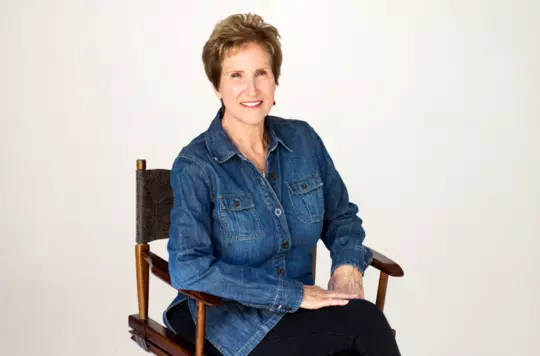
Author Francine Rivers tells Emily Bright how becoming a Christian prompted her to turn over a new leaf in her career.
